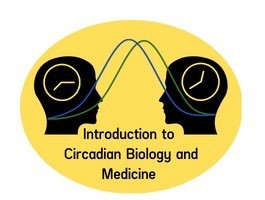Introduction to Circadian Biology and Medicine

Over the last few decades, our understanding has advanced rapidly about a subject that as recently as 50 years ago was a mystery: the existence and function of innate biological mechanisms for recognizing the local time of day and for measuring the passage of time (endogenous circadian “clocks”). While the cognitive, medical, and social impact of daily timing is part of everyone’s life experience, for most biomedical investigators and practitioners there remains a gap in their fundamental and working knowledge of the field. This course is designed for a wide range of learners seeking a foundation of core principles and practical lessons in health & well-being, including researchers and clinicians pursuing an expert preparation for the practice of circadian biology in the classroom, laboratory, hospital, and clinic.
Objectives
- This course aims to provide basic and clinical knowledge in biological rhythms for application in research and clinical practice.
Target Students
This course is targeted for graduate students from the FMUL-CAML from all areas, but it also should be of interest to practicing researchers and clinicians. Attendance at the course will also be possible remotely, for international and external students from other universities.
Topics Covered
- Basic concepts of circadian timekeeping;
- Molecular, cellular, and neural substrates of circadian clocks;
- Circadian rhythm synchronization to the 24-hr day-night cycle;
- Circadian regulation of physiology, metabolism, and sleep;
- Circadian misalignment and its role in disease symptomatology and etiopathogenesis;
- Methods for circadian research in model organisms and human subjects;
- Methods and protocols for circadian analysis, from molecular to clinical;
- Circadian considerations in medical diagnosis and therapy (chronotherapy);
- The future of translational and personalized circadian medicine;
- Circadian biology and society.
Date
May 22 to 26, 2023 from 3pm to 7pm
Venue
Room 8, Egas Moniz Building
Fees
FMUL/ PhD Students - Free
For external students - 300€
Other Information
To apply please visit: https://fenix.medicina.ulisboa.pt
Candidates who already have a CAMPUS account (who are attending or have attended a course at the Faculdade de Medicina), must start the application at https://fenix.medicina.ulisboa.pt
To access must log in with the Campus account and then access the Candidate menu (at the top of the page) to start the application.
If you don’t remember the username or password of the account click HERE and follow the instructions for the recovery of the username or password. If you cannot retrieve your username or password trough the recovery mechanism, you should send an email to the address suporte@medicina.ulisboa.pt with the following data: full name; student number; course number identification; ID number (BI/CC); External email.
Applicants who do not have access to the Campus account (Fenix) should register HERE.
After creating your account you will receive in your email the username after which can start the formalization of the application in https://fenix.medicina.ulisboa.pt
Coordination





